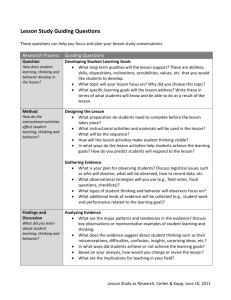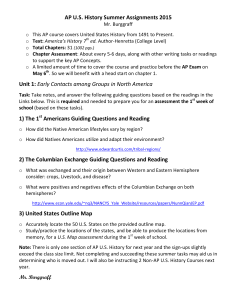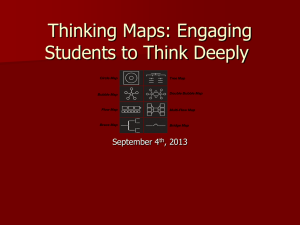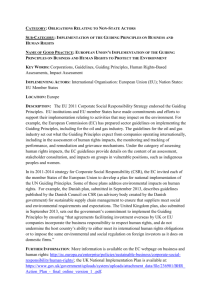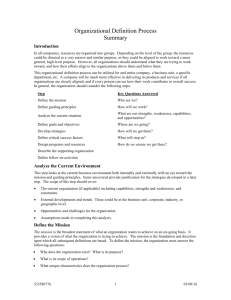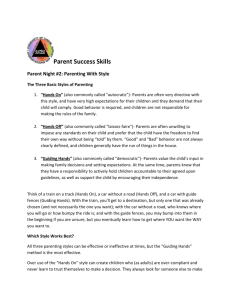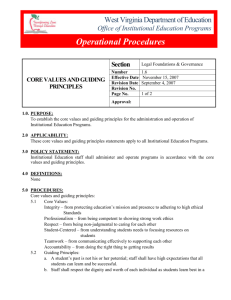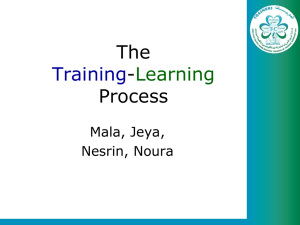DISCUSSION STARTER 1: Objects and guiding principles
advertisement
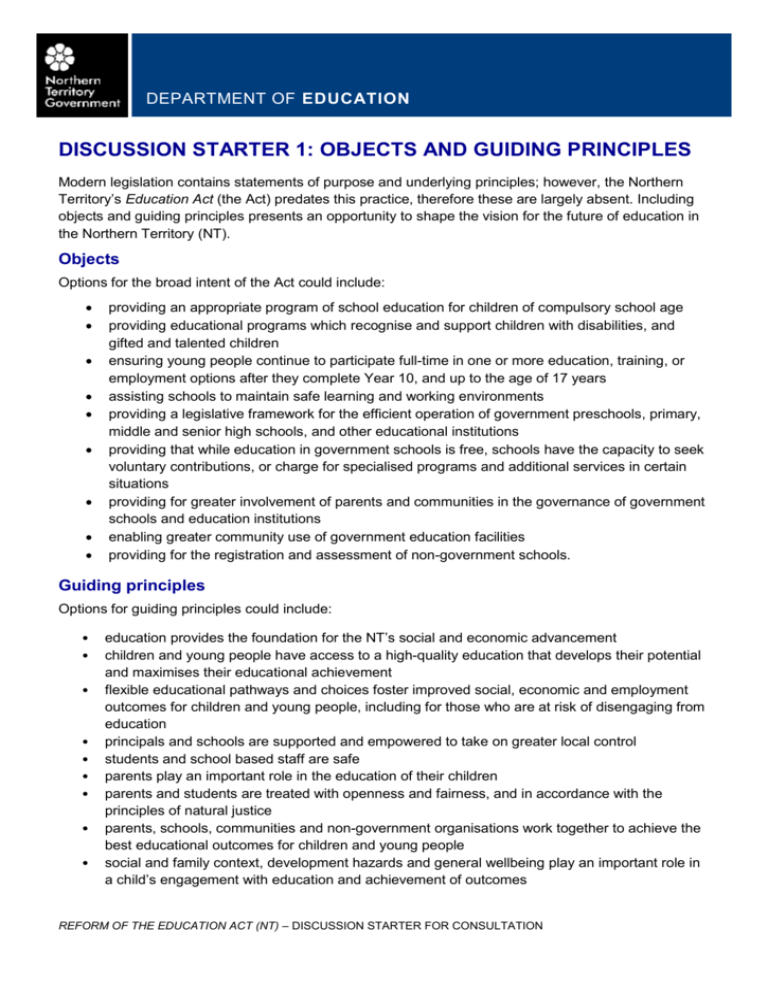
DEPARTMENT OF EDUCATION DISCUSSION STARTER 1: OBJECTS AND GUIDING PRINCIPLES Modern legislation contains statements of purpose and underlying principles; however, the Northern Territory’s Education Act (the Act) predates this practice, therefore these are largely absent. Including objects and guiding principles presents an opportunity to shape the vision for the future of education in the Northern Territory (NT). Objects Options for the broad intent of the Act could include: providing an appropriate program of school education for children of compulsory school age providing educational programs which recognise and support children with disabilities, and gifted and talented children ensuring young people continue to participate full-time in one or more education, training, or employment options after they complete Year 10, and up to the age of 17 years assisting schools to maintain safe learning and working environments providing a legislative framework for the efficient operation of government preschools, primary, middle and senior high schools, and other educational institutions providing that while education in government schools is free, schools have the capacity to seek voluntary contributions, or charge for specialised programs and additional services in certain situations providing for greater involvement of parents and communities in the governance of government schools and education institutions enabling greater community use of government education facilities providing for the registration and assessment of non-government schools. Guiding principles Options for guiding principles could include: • • • • • • • • • education provides the foundation for the NT’s social and economic advancement children and young people have access to a high-quality education that develops their potential and maximises their educational achievement flexible educational pathways and choices foster improved social, economic and employment outcomes for children and young people, including for those who are at risk of disengaging from education principals and schools are supported and empowered to take on greater local control students and school based staff are safe parents play an important role in the education of their children parents and students are treated with openness and fairness, and in accordance with the principles of natural justice parents, schools, communities and non-government organisations work together to achieve the best educational outcomes for children and young people social and family context, development hazards and general wellbeing play an important role in a child’s engagement with education and achievement of outcomes REFORM OF THE EDUCATION ACT (NT) – DISCUSSION STARTER FOR CONSULTATION • • • • • learning environments are culturally appropriate and reflect the diversity of contemporary Australian society, and the cultural diversity of the NT families, kinship groups and communities participate in significant decisions relating to the education of their children opportunities are available for schools to engage with international education accountability and transparency are fundamental to the provision of high quality education innovation, diversity and opportunity are encouraged within and among schools. WHAT DO YOU THINK? Are the options for the Objects of the Act the right ones? If not, which ones and why? Are the options for Guiding Principles for the Act the right ones? If not, which ones and why? Are there other Objects or Guiding Principles that should be considered? DISCUSSION STARTER 1: OBJECTS AND GUIDING PRINCIPLES - 2 -

